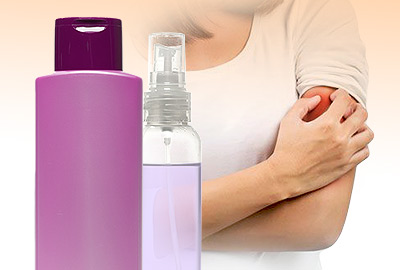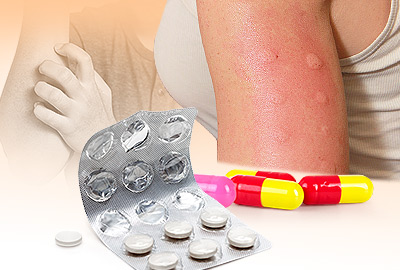Itchy skin is uncomfortable and distracting, especially during menopause due to its chronic nature. There are, however, simple steps to reduce and even eliminate these symptoms.
Turn Down the Dial
Everyone loves a hot shower: it feels great during cold winter months, and some just feel cleaner in all that heat. Such temperatures are, however, horribly dehydrating and easily dry out the dermal surface, causing itchy skin. During menopause, hot showers are particularly detrimental, as they can not only dehydrate but also trigger hot flashes. To avoid all of these problems, opt for lukewarm water. What's more, cold water is thought to promote hair health - a blast of chill water, if tolerable, might be beneficial.
Try Scentless Lotion
After showering, it's best to immediately apply lotion to susceptible areas and continue to apply as necessary throughout the day. That said, itchy skin during menopause does not disappear with just any cream, since the body's hormonal fluctuation during this time may make skin more sensitive or even produce allergic reactions when they weren't there before. Allergies are most often caused by fragrances added to the lotion, so choose a scentless option to stop the problem before it starts.
Invest in Cardigans
Hot flashes represent the most common menopausal symptom, and they can often produce excess sweat, which leads to dermal irritation. Therefore, itchy skin during menopause can be further forestalled by dressing in layers, which can be taken off as needed to regulate body temperature.
Pay Attention to Dietary Needs
Itchy skin during menopause is sometimes caused by nutritional deficiencies, which are difficult to detect but easy to remedy. Vitamins A and C are especially important to maintaining healthy skin, as they are heavily involved in collagen production. Fruit and vegetable sources such as sweet potato and citrus fruit are helpful to that end. Omega-3 fatty acids, found commonly in fish and flaxseed, are integral to creating a natural oil barrier between the skin and the outside world.
Those suffering from itchy skin due to hormonal imbalance can also eat soy and avocado to replenish estrogen levels and reduce menopausal symptoms at the source of trouble.
By following the simple steps listed above, itchy skin during menopause can become a problem of the past permanently.
Sources
- Office of Dietary Supplements. (n.d.). Vitamin C - Quick Facts. Retrieved December 12, 2013, from http://ods.od.nih.gov/factsheets/VitaminC-QuickFacts/
- Vorvick, L.J. (2012). Dry skin: MedlinePlus Medical Encyclopedia. Retrieved December 12, 2013, from http://www.nlm.nih.gov/medlineplus/ency/article/003250.htm




